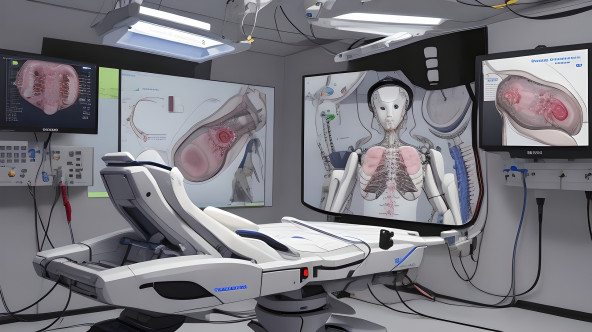Outsourcing in hospitals? - Decision of the BSG from 27.04.2022 Decision of the BSG of 27.04.2022

Facts of the case
The plaintiff hospital is included in the hospital plan of the state of Baden-Württemberg with a department for radiation protection. However, this department was closed years ago, whereupon the hospital entered into a cooperation agreement with an outpatient radiotherapy practice for the provision of radiotherapy services. The radiotherapy practice is located in the immediate vicinity of the hospital.
In 2010, a patient suffering from breast cancer was admitted as an inpatient. During the inpatient stay, the radiotherapy practice provided radiotherapy services. The hospital paid the practice around EUR 1,600 for these services. The hospital claimed payment of around EUR 7,500 from the health insurance fund, of which around EUR 4,000 was for the radiotherapy services. The health insurance company refused to pay the remuneration for the radiotherapy services.
Decision of the BSG
The BSG ruled in favor of the health insurance company:
"It is true that hospitals can also bill third-party services that were arranged for treatments by it. However, the law does not allow the hospital to regularly and systematically outsource essential services covered by its care mandate to third parties that are not integrated into its organization. The hospital itself must provide the space, equipment and personnel required to provide the essential services for the areas specified in the care mandate (specialist departments, centers, specialist programs, etc.). Essential services are all services that are regularly required in the respective specialist department - with the exception of supporting and supplementary services, such as laboratory tests or radiological examinations."
The core statement is that the hospital must provide the spatial, instrumental and personnel equipment itself: Outsourcing or cooperation with other hospitals or the outpatient sector in the areas specified in the care contract would, according to this ruling, result in the services provided not being billable. However, the detailed reasons for the ruling are not yet available. However, the BSG is continuing a line already taken in 2011: In its ruling of 23.03.2011 (B 6 KA 11/10 R), the court stated that reasons of quality assurance and transparency argue that hospital services may not be provided by third parties:
"The requirement that the hospital's services should in principle be provided by its own staff is also in line with the objective of quality assurance; this is because if the hospital has its own staff, who are integrated into the organizational and directive structure of the hospital, it can most likely be assumed that they will be selected, instructed and monitored according to the highest possible standards of qualification. This view is also supported by the aspect of transparency of service provision from the patient's perspective. If the patient decides to have an outpatient operation performed in hospital and not in an outpatient contract doctor's practice, he or she will typically expect to be operated on by a hospital doctor who is permanently employed there and involved in inpatient care. Finally, it is also the legal norm for hospitals to work with their own staff."
(BSG, judgment of 23.03.2011 - B 6 KA 11/10 R, para. 59)
Contradiction to a decision of the BVerwG?!
With this decision, the BSG is openly contradicting a ruling by the Federal Administrative Court from 2020: In its ruling of 26.02.2022 (3 C 14.18), the Federal Administrative Court came to the conclusion in a case concerning the inclusion of a hospital in the hospital plan that a hospital may also ensure its services with medical staff provided by another hospital as part of a cooperation. In this case, a hospital did not have its own medical staff for the core services, but had them provided by the nearby university hospital as part of a cooperation agreement by way of temporary employment.
The BVerwG emphasized that Section 20 (2) sentence 2 Ärzte-ZV and Section 2 (3) BPflV as well as Section 2 (3) KHEntgG created the legal requirements for cooperation between the outpatient sector and hospitals. Only proper patient care must be ensured within the framework of cooperation agreements.
In contrast, the BSG now assumes that the hospital itself must "provide the space, equipment and personnel to provide the essential services" for the areas specified in the care mandate. This is the opposite of what the BVerwG decided!
Legal uncertainty for hospitals
There is therefore considerable legal uncertainty for hospitals, as the following paradoxical result is reached when these two rulings are viewed together: According to the case law of the BVerwG, they can be included in the hospital plan in such constellations - but according to the case law of the BSG, they cannot bill the services provided by the doctors.
It remains to be seen how the BSG will justify its decision - which has so far only been published as a press release. Hospitals should check their existing cooperation agreements with other hospitals and the outpatient sector for compliance with the new BSG ruling and adjust them if necessary.
The BSG's result contradicts the case law of the BVerwG and would therefore actually be a case for the Grand Senate of the Supreme Court of the Federal Republic of Germany, as here a federal court deviates significantly and also with high practical relevance from a legal opinion of another federal court.
